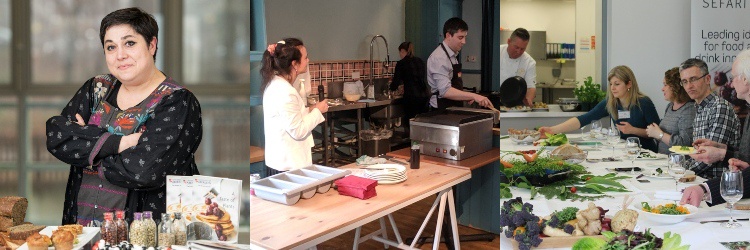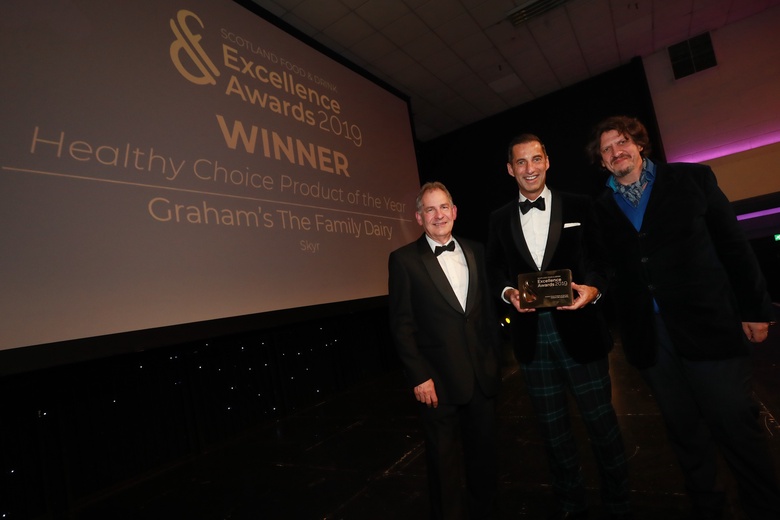News
Early career award for Dan Powell
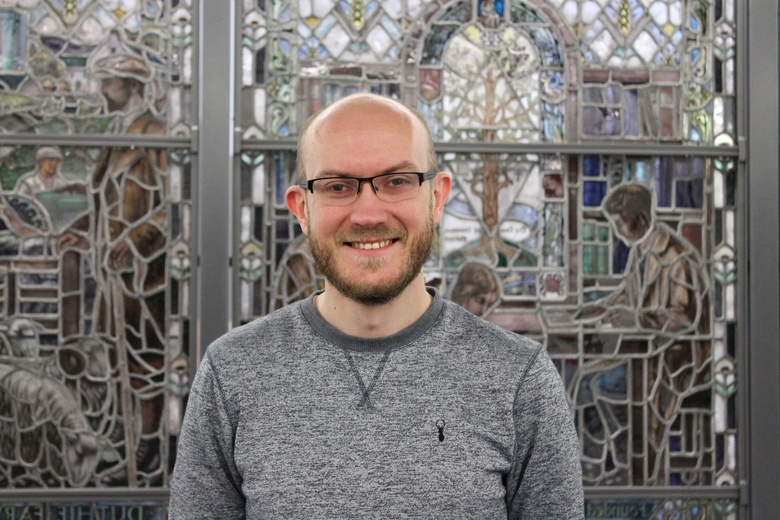
Dan was presented with his award at the EHPS annual conference in Dubrovnik earlier in September. More information on the award can be found here >>
Sylvia Duncan internationally recognised by bacterial species
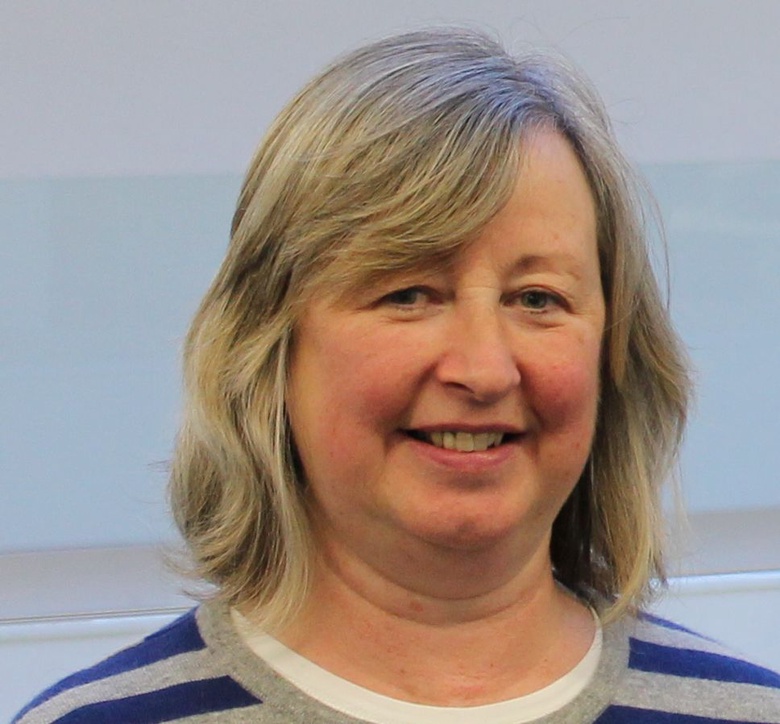
The German research group thought that this was a fitting way to acknowledge Syvia's significant research impact over her career.
The Rowett sponsors the Healthy Choice award at the Scotland Food and Drink Excellence Awards
The Rowett Institute sponsored the Healthy Choice award, which celebrates companies and products whose very ethos has healthy eating at heart. Institute director Professor Peter Morgan presented the 2019 Healthy Choice award to Graham’s The Family Dairy whose Skyr yoghurt beat the other 17 competitors to the top spot.
Grant successes

Dr Silvia Gratz in the gut health research group, has been awarded a £50K Development Award under the MRC’s GCRF nutrition and disease call to study multiple dietary risk factors contributing to childhood stunting in India, with a focus on mycotoxins.
Research
Eating like there’s no tomorrow
Jennie Macdiarmid, Flora Douglas and Jonina Campbell

The study found that public opinion around eating meat is still associated with important personal, social and cultural values, suggesting that individual dietary change will be difficult to achieve without addressing these values and beliefs. At the time of the study, there was a lack of awareness of the association between meat consumption and climate change among the participants, but even when presented with this concept there was a general resistance to the idea of reducing meat consumption.
Article >>
Tracking Snacking in Real Time
Julia Allan, David McMinn and Dan Powell
.jpg)
The results showed that while there were broad group snacking behaviours such as when socialising or watching television, there was a lot of variation between specific individuals. This suggests that potential interventions for behaviour change should be designed using a personalised, environmentally tailored approach rather than a traditional ‘one size fits all’ approach.
By detecting activities, social contexts and locations where high consumption is particularly likely, interventions could be targeted more effectively, increasing the chances that behaviour change is achieved.
Article >>
Rowett Scientist on Times front page
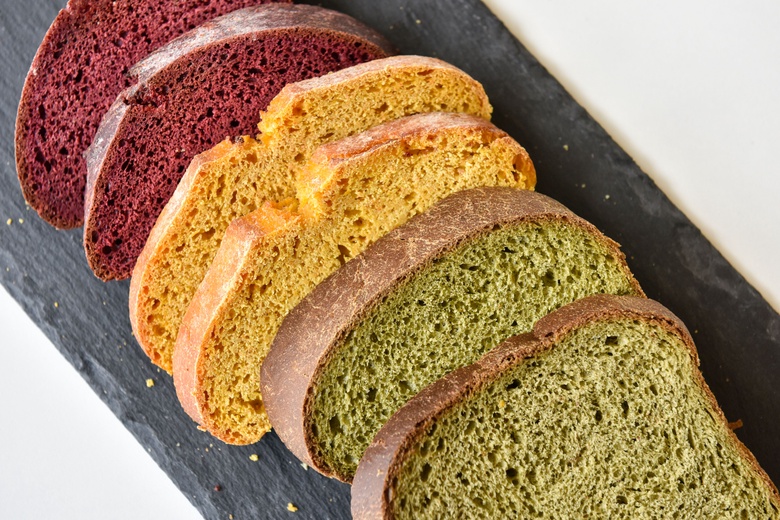
Carrot, spinach and beetroot bread were the most successful, while other vegetables such as broccoli adversely affected the dough. He also introduced the work being done around developing high-fibre breads using underutilised natural products like broad bean hull.
Viren said
Familiar staple foods that consumers enjoy eating can be excellent vehicles for improving nutrition status. In this work we are using bread for increasing intake of essential nutrients such as fibre.
This approach has multiple benefits, on one hand it produces less energy dense foods that are more nutritious, and on the other hand it helps reduce waste by revalorising underutilised primary produce.
Highly cited Rowett research
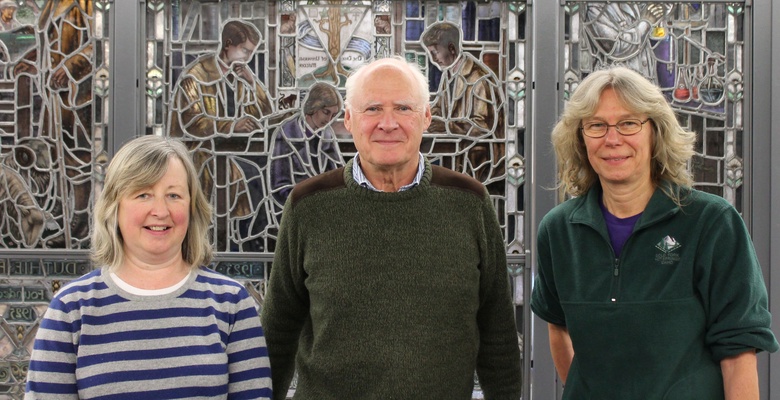
For the first time in this list, Clarivate introduced a new "Cross-Field" category to identify researchers with substantial influence across several fields during the last decade. Sylvia Duncan is listed in this new category, demonstating her breadth of knowledge, techniques and experience.
See the list here >>
Policy
The Scientific Advisory Committee on Nutrition report on saturated fats and health.

Professor Haggarty then hosted a webinar organised by the Nutrition Society in which he discussed the scientific evidence in the SACN report, its implications to many health outcomes as well as research reccommendations arising from the report.
Read the SACN report >>
Food Forever Exhibition
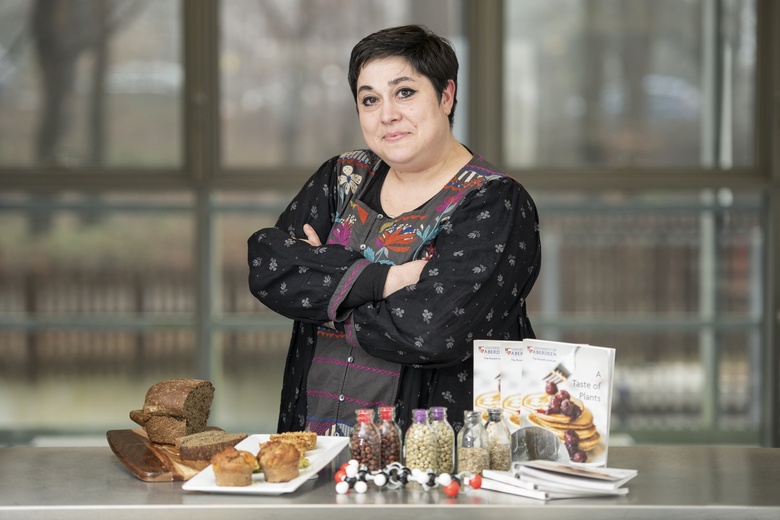
SEFARI, the Scottish collective of environment, food and agriculture research institutes, is also supporting the exhibition and six of the 18 portraits feature people who work for SEFARI. Among them is Dr Madalina Neacsu, from the Rowett Institute, who is looking at the use and health benefits of unfamiliar crops that can be grown in Scotland. The aim is to encourage a greater diversity of plants in the diet, which in turn can encourage farm diversification.
Charles Bestwick, director of SEFARI Gateway, commented
SEFARI research aims to secure the supply of healthy and sustainable food through an integrated approach to agriculture, environment, food, health and the economy
RSA Round Table Discussions
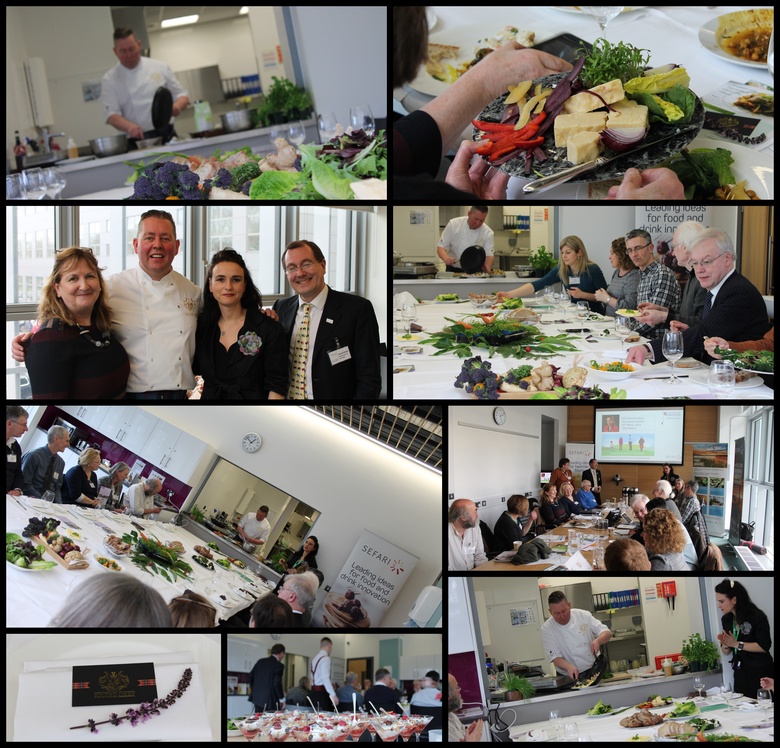
Organised with the James Hutton Institute and SEFARI Gateway, delegates had talks from two of our scientists and were then treated to lunch.
Sue Pritchard – Director of the Food, Farming and Countryside Commission said
The diverse variety of perspectives brought together for us was interesting and illuminating – from food and farming, to arts and culture, health and wellbeing, community development, to environment and land use.
As well as getting a fascinating tour of the Institute, a particular highlight was when Craig Wilson (the Kilted Chef from Eat on the Green restaurant in Udny) demonstrated and cooked a super lunch.
SEFARI Gateway Director
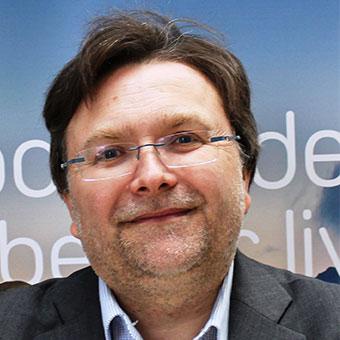
Dr Charles Bestwick is the director of SEFARI Gateway and leads on working across the portfolio to develop strategies to communicate research outcomes and respond to evidence needs.
Amongst SEFARI’s aims is for “research to secure the supply of healthy and sustainable food through an integrated approach to agriculture, environment, food, health and the economy”.
https://sefari.scot/sefari-gateway
https://sefari.scot/directory-of-expertise/dr-charles-bestwick
Community Engagement
Design and Diversify your diet
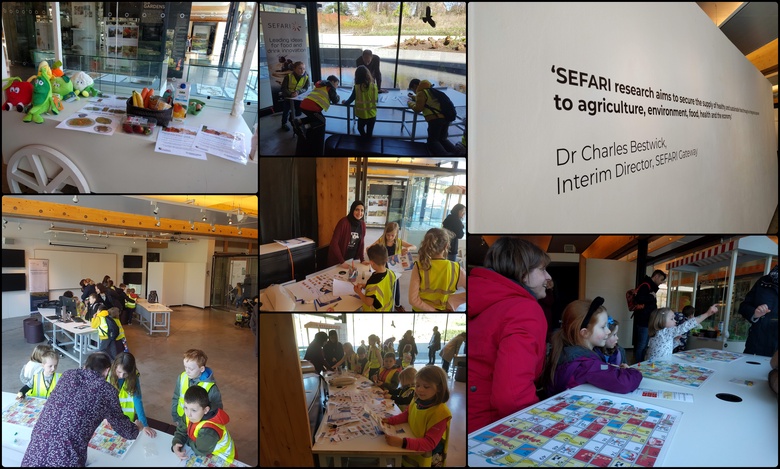
It was a busy day, but all our visitors engaged with our games and activities and had a great time.
Pancake Toppings and Tastings
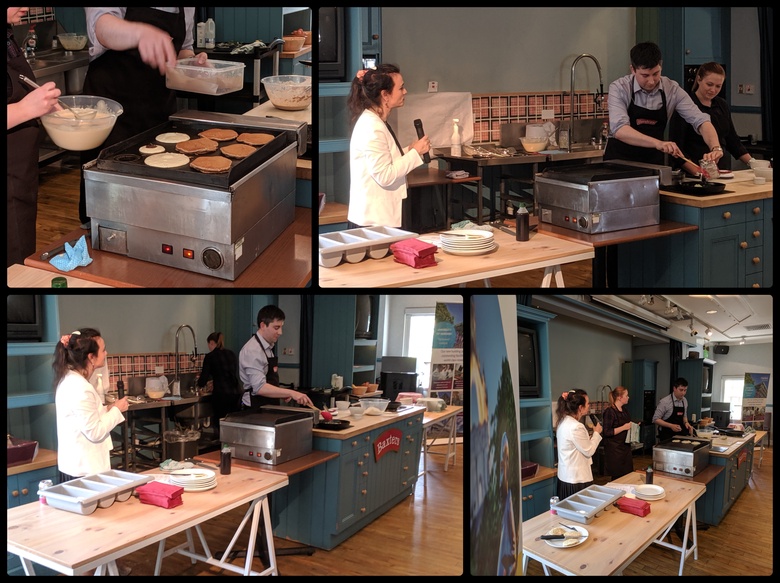
There was time for refreshments afterwards, including more Baxters treats. The children also had the opportunity to design their own pancake as well as an activity choosing what they would like on a healthy plate. The lucky winner of the best pancake design won a hamper with lots of cooking ingredients.
Doors Open Day
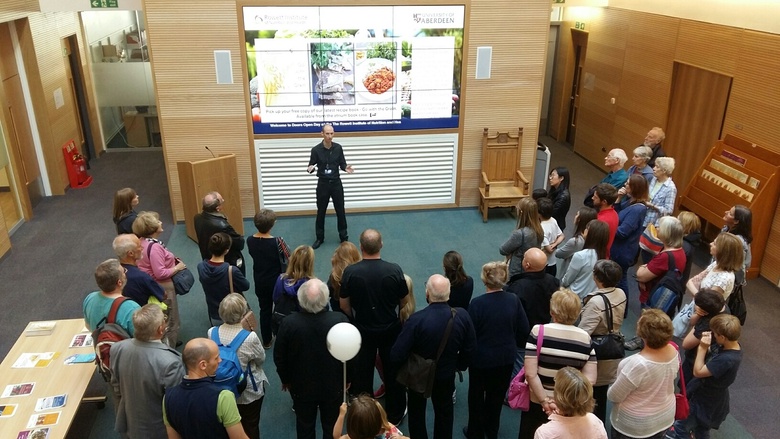
Some of the feedback from visitors was very encouraging.
This was a very worthwhile visit. Thank you very much.
I will adjust my diet to suit me and the planet.
First visit and thoroughly enjoyed it.
Volunteering for a nutrition study
Would you like to contribute to science? Vounteering for one of our nutrition studies is an easy way to contribute, and it is very beneficial to our volunteers.
Established to provide a metabolic research centre to study the relationship between diet and health in humans, our new human nutrition unit is a superbly equipped, one-of-a-kind facility. We can measure your resting metabolic rate and body composition in the clinical area; there is very comfortable overnight accommodation should a study require it, and we have a bright volunteer's dining area adjacent to a fully equipped kitchen.
There are many different studies running at any one time, and we are always looking for volunteers to take part. Two of the most recent studies for which we are recruiting are the Fruit Bar study (looking at whether a concentrated fruit bar could change blood sugar levels), and the Fibre for Health study in which we are investigating high levels of fibre and how it effects gut health. Our volunteers always find taking part in a study worthwhile, let them tell you in our volunteer story video:

